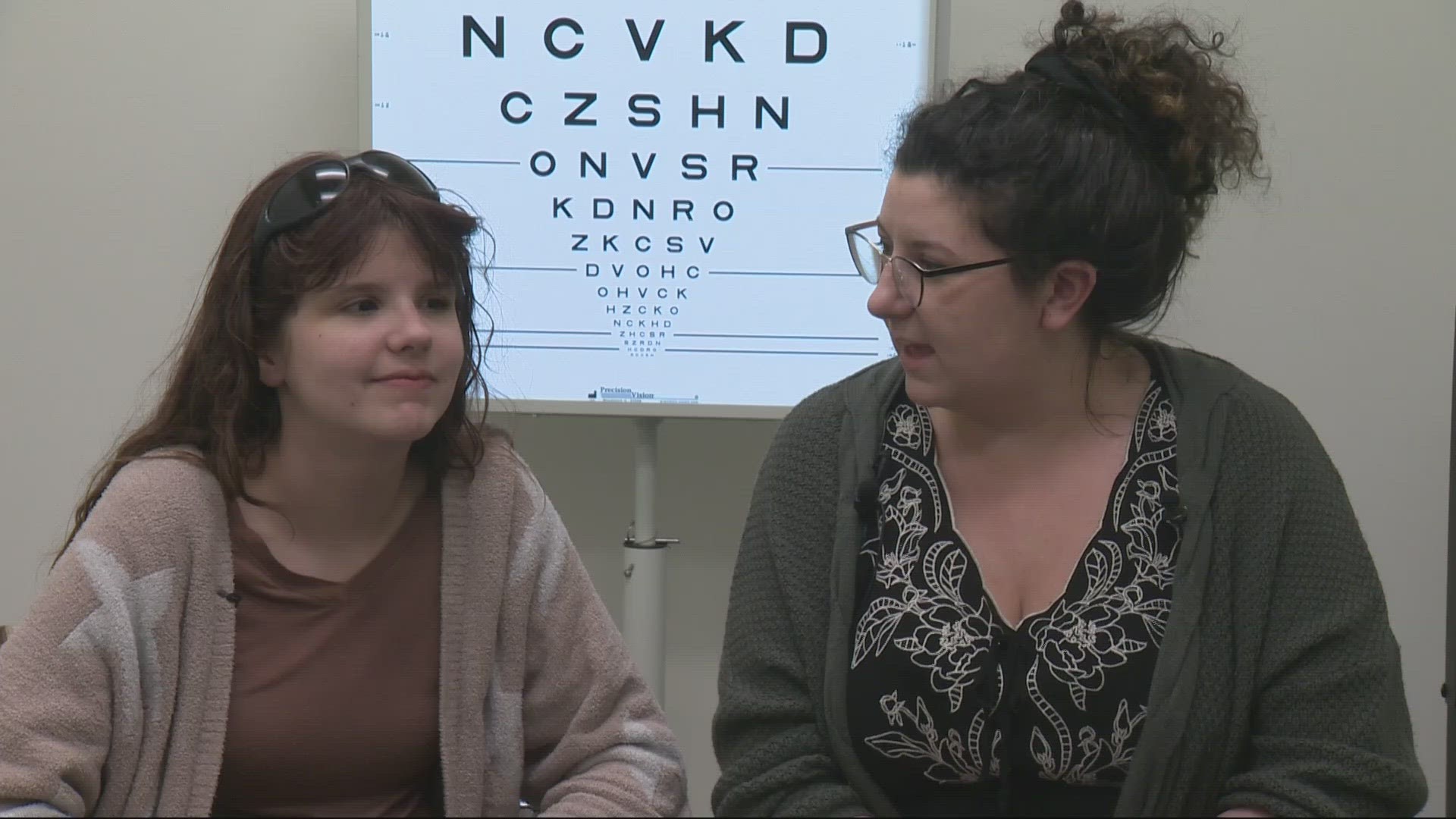PORTLAND, Oregon — A Washington teen recognized snow falling for the first time after undergoing gene therapy in a clinical trial at Oregon Health & Science University (OHSU).
"I saw some of the big snowflakes!" said 16-year-old Aiden Moore-Van De Rostyne in a video her mom recorded back in January. "There’s a big snowflake in your hair," said mom Eliza Van De Rostyne, followed by laughter from Aiden.
The magical moment was an unexpected sign of progress nearly a year after Aiden underwent a special surgery at OHSU's Casey Eye Institute. It was part of a clinical trial evaluating potential treatment for inherited blindness.
Aiden was one of 15 people in the U.S. to receive the treatment for Leber congenital amaurosis (LCA). The congenital disease affects the retina and is found in one out of 50,000 newborns and accounts for 20% of blindness in school-age kids.
Aiden is legally blind and very sensitive to light. She struggles seeing contrast in situations like snow falling against a bright sky — which made what happened feel so significant.
"It was just so unexpected for her to say that and have that reaction," Eliza said. "Just happy. Everyone was just super excited to see some kind of tangible result for kind of all the travel we've done and the time that's been dedicated to this."
Aiden and her family live in Walla Walla, Washington. Ever since Aiden was a baby, they've traveled to OHSU for treatment. According to doctors, surgery for the clinical trial involved delivering a good copy of the faulty gene to the retina with the hope of jump starting the retina to start working normally.
"We talked about what it meant to participate in something like this to help other people," Eliza said. "Kind of be our own version of a superhero."
Doctors were encouraged to see Aiden distinguishing the snow falling.
"When I saw the video, I thought this was such a wonderful kind of real-life account of the potential benefits of this gene therapy," said OHSU’s Dr. Paul Yang. "It's such a privilege to be among the first to witness perhaps the first signs of success in a clinical trial such as this."
Doctors only treated Aiden's left eye and will use her right eye as a control to monitor her progress. They'll monitor her for about five years with the goal of making the treatment available to the public.
Gene therapy treatment used to treat a different type of LCA is already approved by the U.S. Food and Drug Administration.

